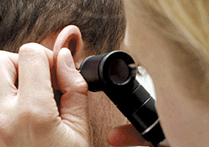Drugs And Hearing Loss
What You Need To Know
 Ototoxicity is a common cause of hearing loss. The literal meaning of Ototoxic is “ear poisoning”. Simply put, it means hearing loss that is caused by (a side effect) intake of a drug or medication.
Ototoxicity is a common cause of hearing loss. The literal meaning of Ototoxic is “ear poisoning”. Simply put, it means hearing loss that is caused by (a side effect) intake of a drug or medication.
There are certain medications that have been classified as Ototoxic drugs. They have been known to cause a variety of ear-related health problems, such as permanent or temporary hearing loss, tinnitus (ringing in the ears), dizziness, hypersensitivity to sounds, and pressure in the ears or balance issues. While some of these medications are unavoidable as they save lives (e.g. chemotherapy) it is always a good idea to go over the side effects of any medications that you are taking and consider alternatives wherever possible.
What Are Some Of The Drugs Or Medications Associated With Hearing Loss?
Temporary Damage:
- Salycilates: for pain relief and heart conditions (e.g. Aspirin, Acetaminophen)
- Anti-inflammatory drugs: for arthritis and other pain relief (e.g. Advil, Voltarin)
- Quinine: used for Malaria treatment
- Loop Diuretics: for certain heart and kidney conditions
- Sildenafil: for erectile dysfunction (e.g. Viagra)
Permanent Damage:
- Aminoglycosides: powerful antibiotics (e.g. Gentamicin, Streptomycin)
- Chemotherapy drugs: for cancer treatment (e.g. Cisplatin, Carboplatin)
- Strong pain relievers: e.g. Hydrocodone in conjunction with Acetaminophen
Ask your doctor if what you are currently taking could be considered Ototoxic even if your medication does not appear on this list.
Many people aren’t aware they are suffering from hearing loss especially when it is gradual. Those who already have a hearing impairment might even see their condition worsen. If you find yourself turning up the volume on the TV, radio or music system, straining to hear conversation or missing out on certain words, getting a hearing test done. It’s a question of your safety.
Contact our hearing specialists today at Bravo Hearing Centre for a consultation/assessment
.


